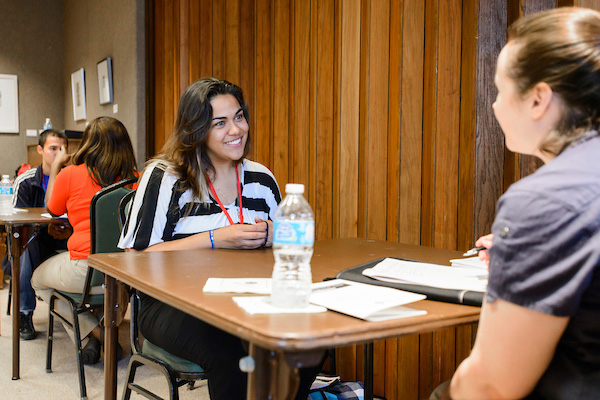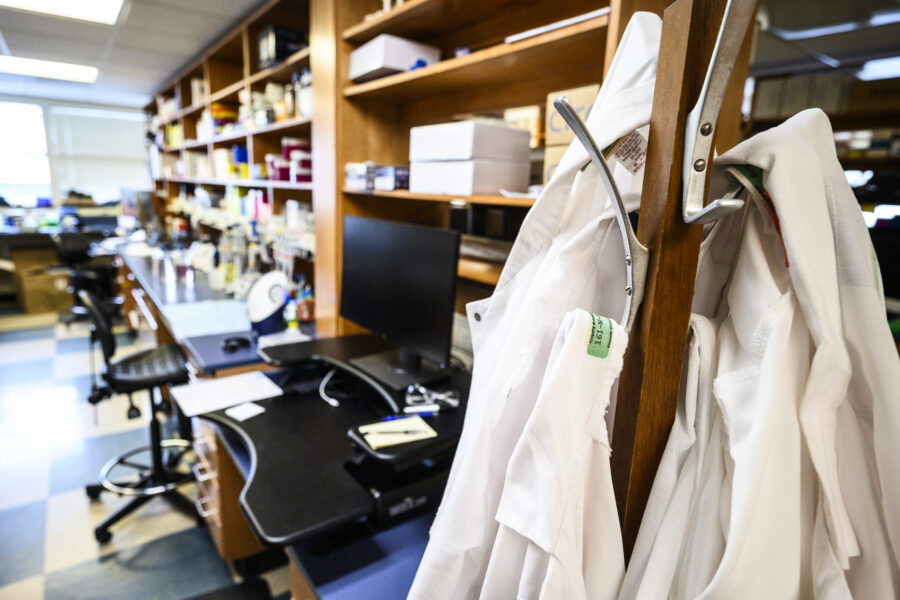About Respiratory Therapy
“Respiratory Therapy is a specialized healthcare field where practitioners are trained in pulmonary medicine in order to work therapeutically with people suffering from pulmonary disease.” (American Association for Respiratory Care)
Respiratory therapists are responsible for conducting diagnostic tests for persons with breathing disorders and recommending treatment methods, interviewing patients and doing chest physical exams, and responding to Code Blue or other urgent calls for care. Helpful skills include knowledge of the scientific principles underlying cardiopulmonary physiology and pathophysiology, critical thinking, patient/environment assessment skills and evidence-based clinical practice guidelines.
Respiratory therapists work in almost all healthcare career settings, including, but not limited to hospitals, intensive care units, sleep laboratories, pediatric units, asthma education programs, and case management programs.
Learn more about the urgent need for more respiratory therapists.
Note: UW-Madison does not offer a Respiratory Therapy program. While this field is not among CPHA’s primary areas of advising expertise, we are here to support you in exploring the career, building helpful experiences, and navigating some aspects of professional program applications. Talk with us if you have questions!
Certified Respiratory Therapist (CRT) / Registered Respiratory Therapist (RRT)
Respiratory therapists must have a minimum of an associate degree from an accredited respiratory therapy education program. However, many students get a bachelor’s degree and some enter the profession with a graduate degree if they wish to pursue leadership roles. Graduates of accredited programs can then take the National Board for Respiratory Care (NBRC) examination.
For the most up-to-date salary information, visit the U.S. Bureau of Labor Statistics website.
Explore Your Interest in Respiratory Therapy
Shadowing & Informational Interviews
An excellent way to explore your interest in the profession is by shadowing and talking with Respiratory Therapists. Reach out to professional programs to see if they can connect you with a student or faculty member.
Volunteering
Programs look for applicants who demonstrate a sustained commitment to serving others. Learn more about opportunities to volunteer in clinical and non-clinical settings.
Jobs
After volunteering and exploring, working in research or a healthcare setting is a great way to learn about practical aspects of the field.
Additional Shadowing Resources
- To inquire about job shadowing opportunities at Rush University, email Priscilla Alvarez (Priscilla_Alvarez@rush.edu) or email Paula Breihan (pbreihan@uwhealth.org) to inquire about job shadowing opportunities at UW Health.
- Reach out to admission specialist Shelley Jackson (Shelley_Jackson@rush.edu) or faculty Ellen Becker (Ellen_Becker@rush.edu) with Rush University’s MS in Respiratory Care to learn more about their program.
- Contact alumni Sarah Brundidge (sarah.brundidge@gmail.com) to learn more about a career as a respiratory therapist.
Application Process
Many programs admit students through a petition selection process.
- View Madison College’s Petition Process
- View Milwaukee Area Technical College’s Petition Process
Required Coursework
Requirements vary from school to school, so it’s always necessary to consult program websites. View a list of CoARC accredited programs.
View a list of prerequisite courses required at Madison College’s program.


